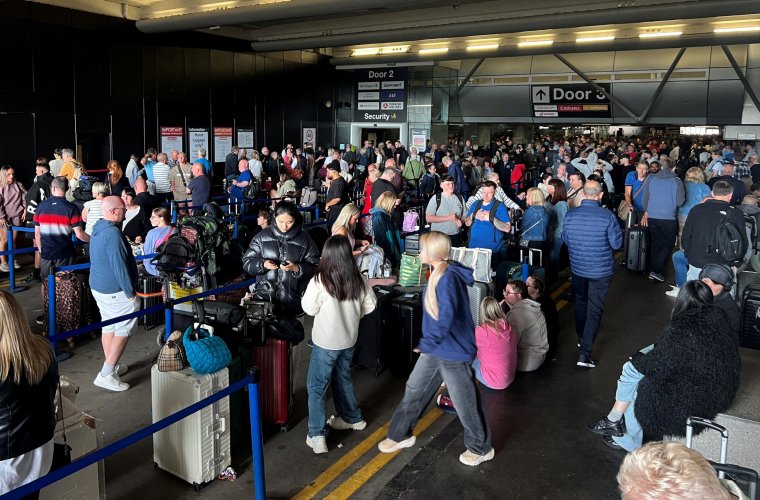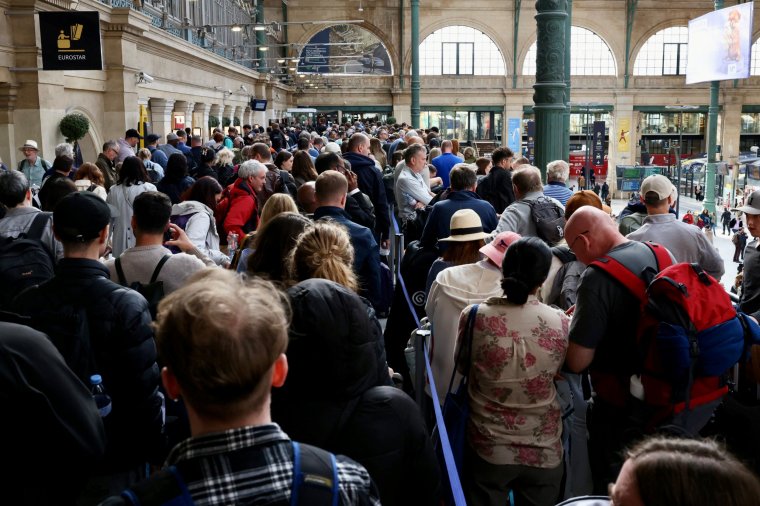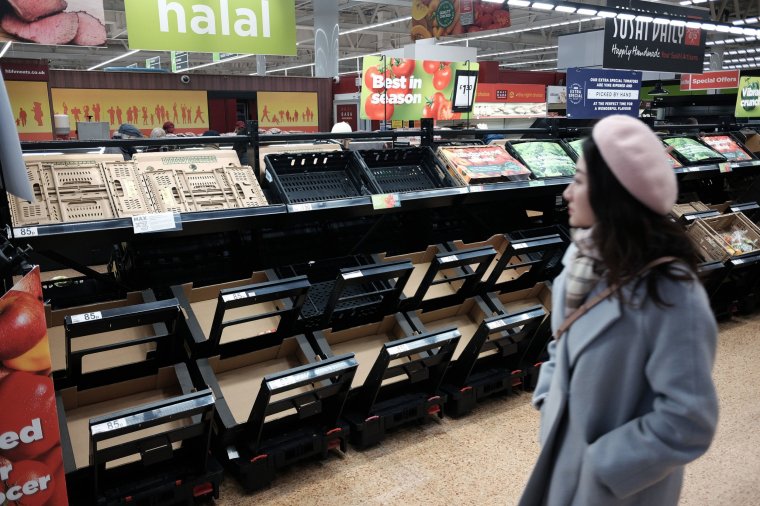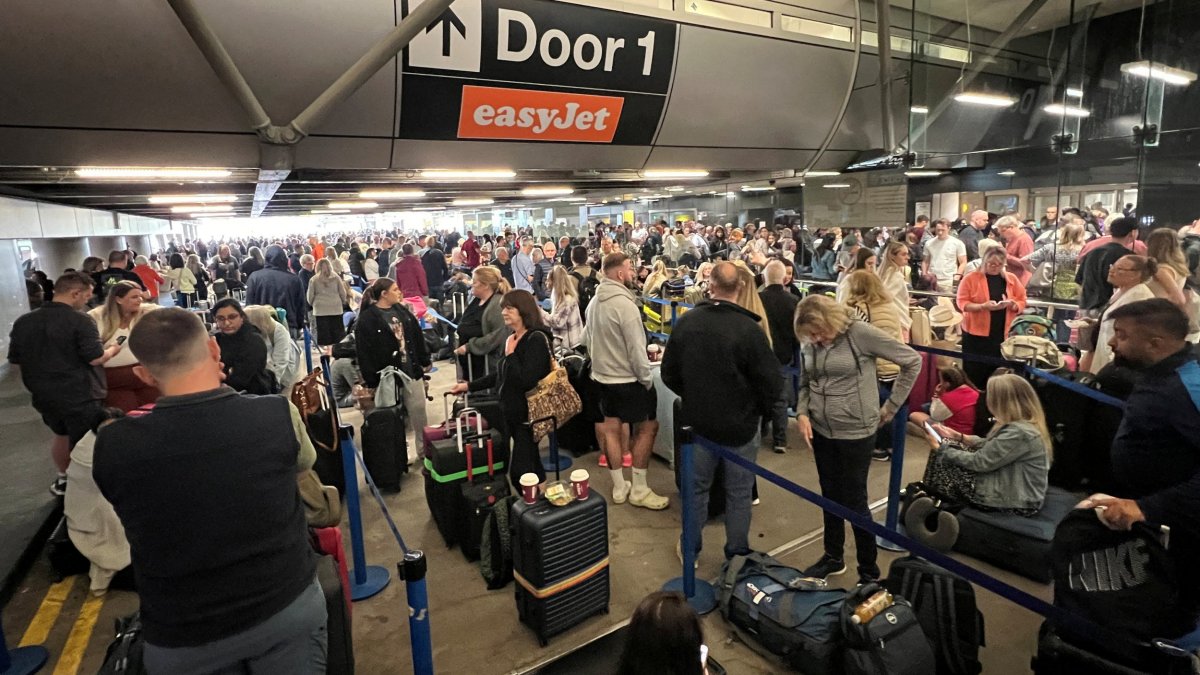Experts and campaigners fear some of the most frustrating elements of Brexit will be left unresolved after Keir Starmer’s ‘reset’
British travellers will continue to face delays going to Europe despite a new deal set to be confirmed this month between the UK and the EU to smooth relations.
Sir Keir Starmer is expected to unveil an agreement with European Commission chief Ursula von der Leyen during a UK-EU summit taking place in London on 19 May.
The deal is set to cover immigration, cross-border security, and checks on animal and plant products, among other issues, prompting hope that some of the everyday issues faced by members of the public since Brexit might be alleviated.
Pedro Serrano, the EU’s ambassador to London, said this week: “The summit will be the culmination of enhanced contacts at the highest levels since the July 2024 elections. Intense work is underway to ensure a significant outcome covering areas from security and defence, to growth and prosperity.”
But experts and campaigners have warned that some of the most obvious problems are unlikely to be resolved by any agreement.
 Queues at European airports, particularly holiday hotspots, are often much longer than they were before Brexit (Photo: Phil Noble/Reuters)Holidays being disrupted
Queues at European airports, particularly holiday hotspots, are often much longer than they were before Brexit (Photo: Phil Noble/Reuters)Holidays being disrupted
While economists tend to argue that Brexit has squeezed economic growth, for most individuals in the UK, the most obvious impact of being outside the EU has been longer queues for passport checks.
This has shown up at the Port of Dover, where wait times to get on to cross-Channel ferries have been two hours or more at peak times in recent years, and at the Eurostar terminal in London, where passengers are told to turn up at least 75 minutes early for their train.
And the queues at European airports, particularly holiday hotspots, are often much longer than they were before Brexit because of the need to stamp all British citizens’ passports and sometimes fewer staff being assigned to process non-EU nationals.
“It affects us in all sorts of ways, but most of them are invisible,” said Anand Menon of the UK in a Changing Europe think tank. He warned that one “obvious” effect that will be noticed by travellers will be even worse queues when the EU introduces new biometric checks, tied to an entry pass that Britons will need to obtain before they visit the continent. Menon said: “I don’t think it is impossible for the EU to say, ‘OK you lot can use the e-gates’ – I think it is vanishingly unlikely, but you never know.”
The Association of British Travel Agents (Abta) has called for “the removal of electronic travel schemes for UK and EU citizens travelling for short periods and touristic purposes” – but this is not on the agenda in the current negotiations.
 People queue at the Gare du Nord after Eurostar trains were delayed by a British e-gate failure in Paris, France, May 30, 2024. (Reuters/Kevin Coombs)
People queue at the Gare du Nord after Eurostar trains were delayed by a British e-gate failure in Paris, France, May 30, 2024. (Reuters/Kevin Coombs)
Brexiteers complain that Brussels has refused to offer British travellers the same terms extended to Europeans – for example, EU passport-holders can use e-gates at UK airports. A former Conservative aide involved in negotiations with the EU complained that “they refused to be easy” on everyday issues.
There is also no realistic prospect of mobile phone operators being compelled to axe the roaming charges that they now apply to British customers using their devices in the EU – the previous ban was a provision of the European single market, which the Government has firmly ruled out rejoining.
Naomi Smith of Best in Britain, which campaigns for closer relations between Britain and the EU, said: “Longer queues at passport control and data roaming charges are some of Brexit’s most obvious downsides – but its true impact on daily life in the UK runs so much deeper.
“While there may be less the Government can do about passport rules, a common-sense deal with the EU at this month’s summit which includes deeper alignment and a youth mobility scheme, backed by two thirds of British voters, can meaningfully address other issues made worse by Brexit including rising food costs, soaring childcare bills and medicine shortages.”
Schoolchildren and musicians in trouble
Two groups that have complained of being particularly badly hit by post-Brexit arrangements are musicians hoping to tour the continent, and schools which want to take groups of pupils on educational trips.
Abta said: “Since the UK left the EU it has become notably harder for school and youth groups to travel, with the introduction of restrictions on ID cards, the phasing out of collective passports (outbound), and removal of the List of Travellers regime, which allowed young people who would ordinarily require a visa to travel visa-free as part of an organised school group.”
Musicians have been hampered by the need to obtain visas for multiple countries, and restrictions on the ways that lorry drivers can work across the EU if they are not European citizens.
Brussels has reportedly rejected the idea of loosening the rules on musicians and other artists as part of the ongoing negotiations.
Richard Kilpatrick of European Movement UK said: “The effects of the UK leaving the EU have made almost every one of us poorer. But it also continues to cost us time and money in our everyday lives. Two-hour passport queues when we go on holiday. New reams of paperwork on every single order for UK businesses trying to export, meaning many saw their European customers completely disappear. Wine more expensive. Musicians unable to tour. Fashion exports hammered. These hits aren’t temporary – they will affect the UK for decades to come.”
Shops hit by shortages
Tougher rules on companies exporting to or importing from the EU have affected businesses, with small firms complaining they are worst hit because they have less experience following cross-border regulations and filling in customs forms.
Balwinder Dhoot of the Food and Drink Federation said: “If you are a consumer, there is going to be a bit less choice and probably an impact on prices to an extent, and it is an ongoing change.” He added that his group had heard “examples of inconsistency and problems like different ports using different rules” from businesses, making it harder to plan ahead.
The Conservatives tried to tackle this issue when they were in government but found that the EU had taken “a precautionary approach to everything”, a source said – rather than trying to minimise the checks.
Nick Thomas-Symonds, the current Minister for European Relations, has worked with supermarkets to push for a smoother border regime, and many of the problems faced by importers and exporters are expected to be addressed by a deal to align animal and plant health standards this month.
Dhoot warned, however, that this would only be a partial solution, while Anand Menon said that the increased red tape remained a burden on firms operating across borders even when they were able to continue trading: “The time and trouble to do stuff, even if you end up being able to do it, that is what businesses have to live with after day.”
 ‘If you are a consumer, there is going to be a bit less choice and probably an impact on prices to an extent’ (Yui Mok/PA Wire)What the public thinks
‘If you are a consumer, there is going to be a bit less choice and probably an impact on prices to an extent’ (Yui Mok/PA Wire)What the public thinks
The Conservatives and Reform UK have warned Starmer against getting too close to the EU, arguing that it would betray Leave supporters by undermining the Brexit settlement.
But polling experts say that voters have become increasingly supportive of closer ties to the continent in recent years, as Brexit has dropped out of the list of top priorities which is now firmly dominated by the economy, the NHS and immigration.
James Crouch of Opinium told The i Paper: “There has been a shift towards the public preferring a closer relationship rather than a more distant relationship with the EU. There were accusations of betrayal at every step of the relationship negotiations – I don’t think that is where even Leave voters are on this now.”
A Government spokesman said: “The UK and the EU share a common set of challenges and this Government has been clear that it is in our national interest to strengthen our relationship. We will not offer a running commentary on negotiations.”
